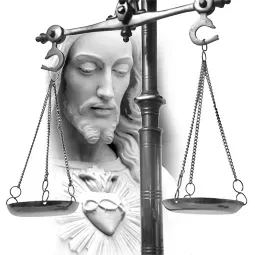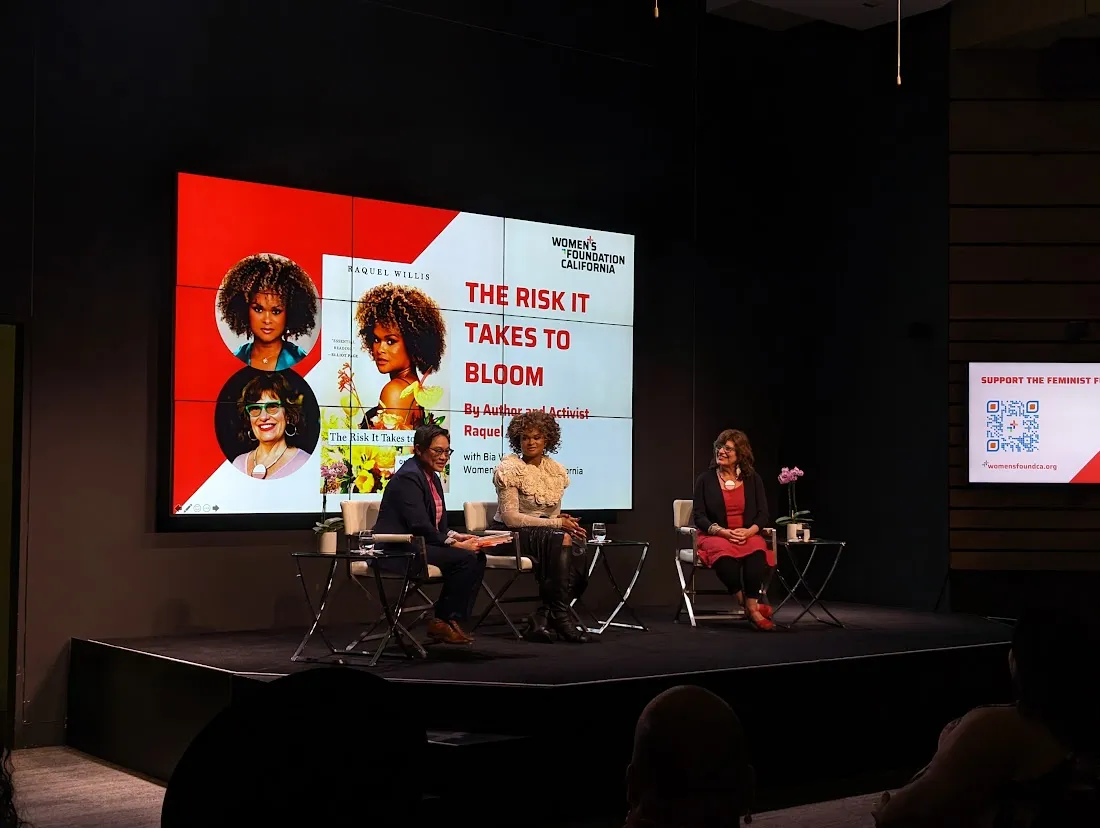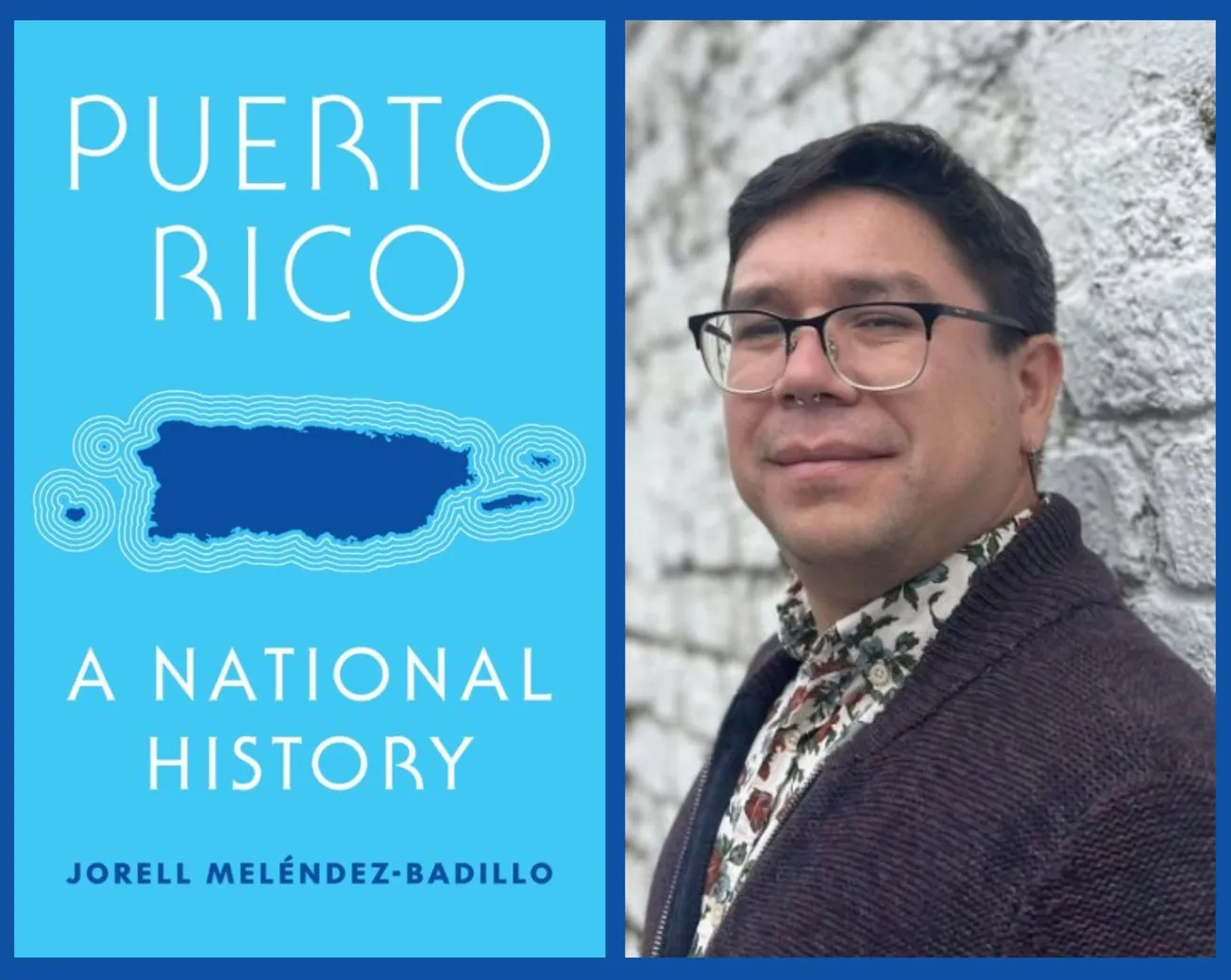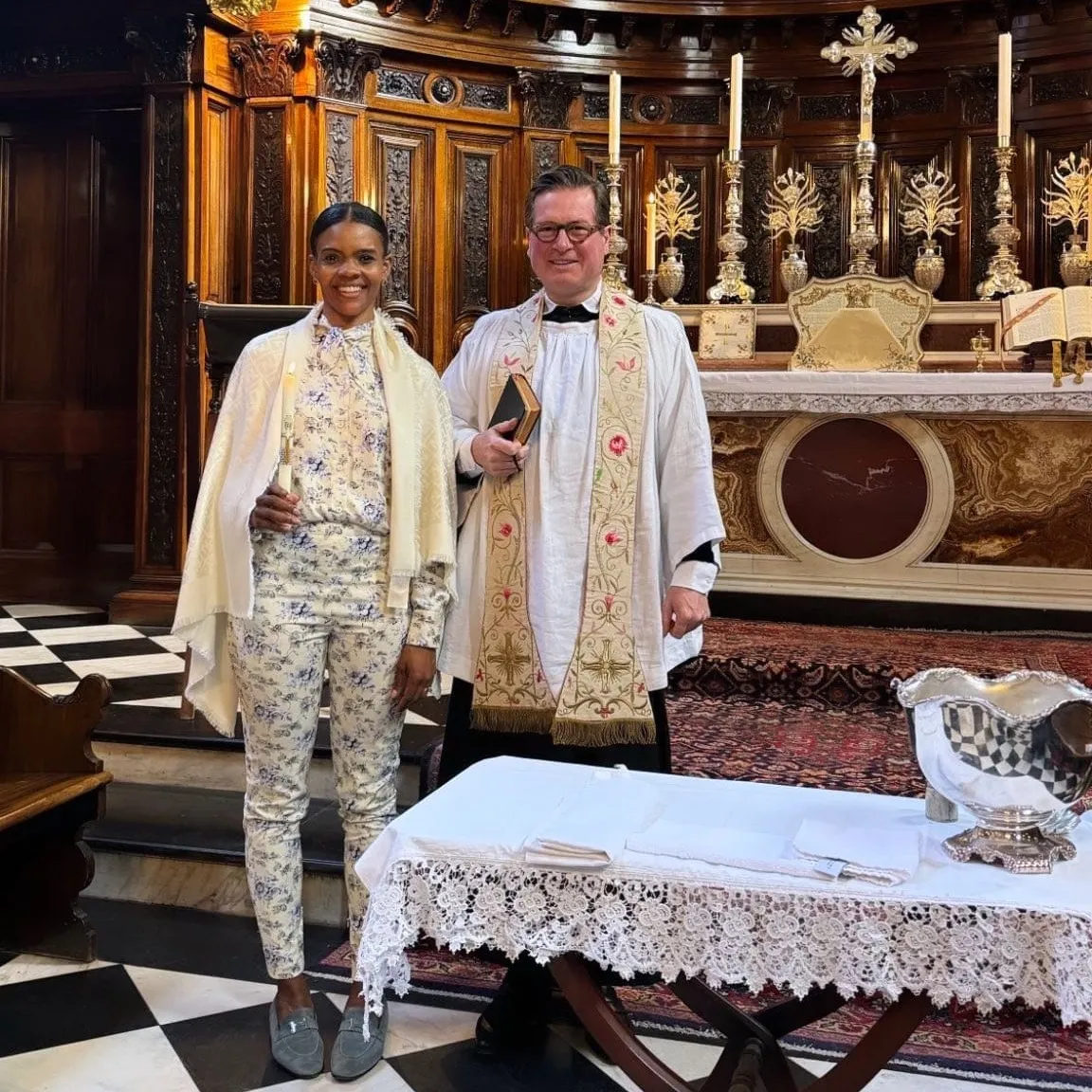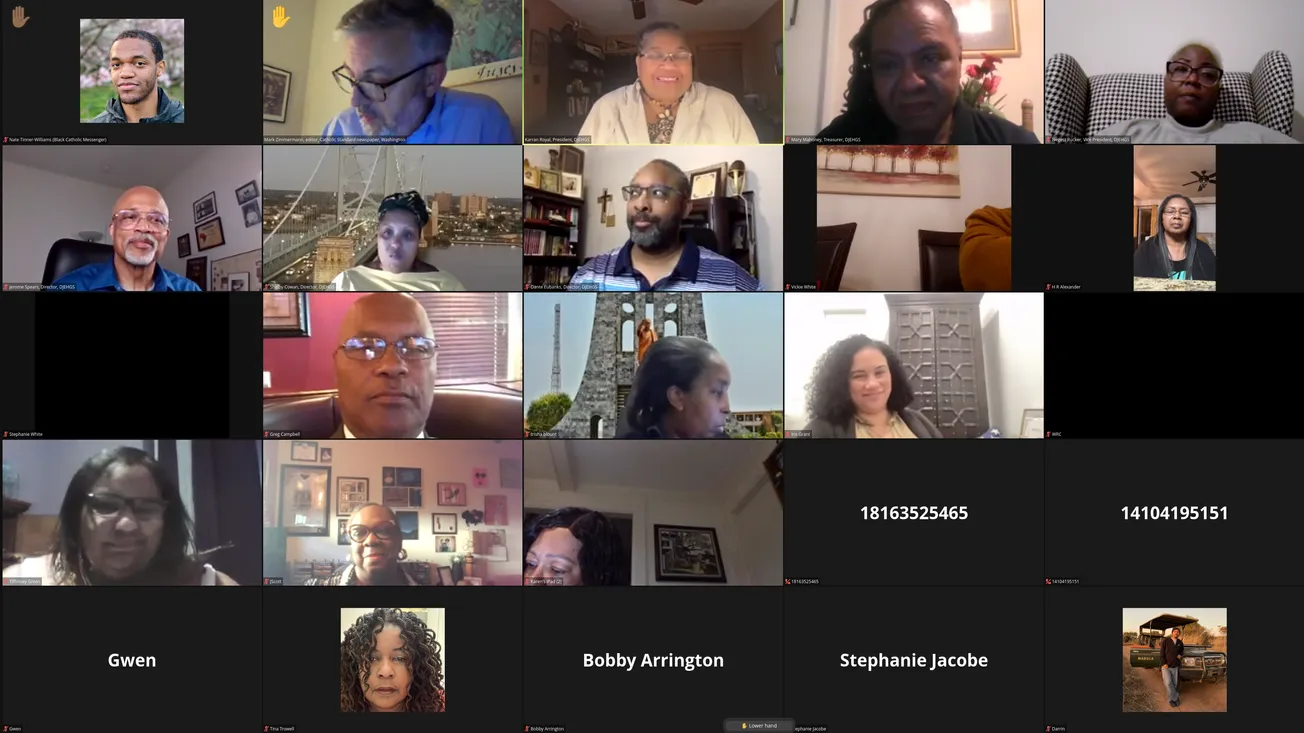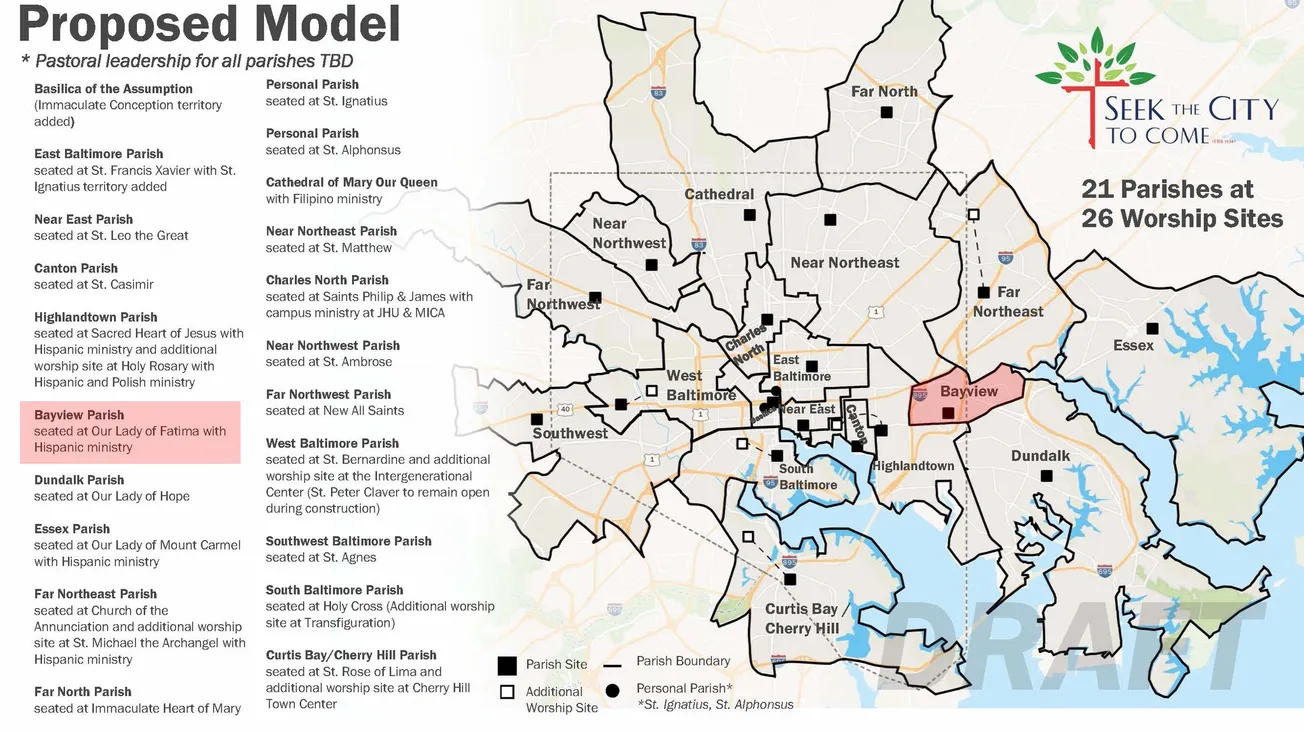On March 15th, The Pew Research Center released a detailed report that provides information and statistics on the Black Catholic population in the United States. According to the report, there are over 3 million Catholics in the US who identify as Black and/or African American. In other words, 6% of Black Americans identify as Catholic.
The findings indicate that “wide majorities of Black Catholics oppose sexism and discrimination against women (75%), are accepting of homosexuality (78%), and say immigrants strengthen society (86%)”. Additionally, Black Catholics are more likely to say that “opposing racism and sexism are essential to what being a faithful Christian means to them” when compared to their White and Hispanic peers. It was also noted that “Black (40%) and Hispanic Catholics (42%) are more likely than White Catholics (18%) to say it is essential that churches teach practical job and life skills, and that they offer sermons that address political topics such as immigration and race relations”.
Even so, many churches are not emphasizing the importance of anti-racism, racial justice, racial equity, and/or race relations among parishioners.
A recent editorial from the National Catholic Reporter (NCR) stated the following:
According to the [Pew Research Center] survey data, gathered in 2019-20, only two in five Black Catholics had heard a homily, lecture or group discussion at church about race relations or racial inequity in the past year. Something seen as essential to the faith was rarely mentioned.
These statistics are alarming considering the recent incidents of civil unrest in our nation surrounding the deaths of George Floyd, Breonna Taylor, Ahmaud Arbery, and countless individuals with minoritized identities who have been senselessly and unjustly murdered as a result of deep-rooted biases, prejudices, and racial hatred.
While we have seen some progress in the Church (e.g., the 2020 elevation of Archbishop Wilton Gregory as the first Black American to be appointed a cardinal), it feels like a missed opportunity for the Church to take a bolder stance and show solidarity with Black Catholics. Why are so many churches shying away from centering anti-racism and racial equity work when the Catholic Church has repeatedly promoted solidarity and human dignity as an undeniable right?
While anti-racism was not an issue specifically named and addressed by most of the popes in the Catholic Social Teaching era, every pope consistently highlighted matters related to rights, individual freedoms, and human dignity. For example, Pope Leo XIII took a bold stance on protecting the dignity, rights, wages, and interests of laborers in the encyclical “Rerum Novarum”, which kickstarted the modern CST discourse. The Second Vatican Council declared the importance of religious freedom in “Dignitatis Humanae” and how it has its foundation in human dignity. In “Pacem In Terris”, Pope John XXIII talks about human dignity, equality, family life, and the importance of working towards a common good.
Pope Francis, considered by many to be people- and equity-centered, reiterated teachings on solidarity and following the example of Christ in “Evangelii Gaudium” and “Nonviolence: A Style of Politics for Peace”, where he cites the work of the Dr. Martin Luther King Jr. and Mahatma Gandhi. In the encyclical, “Fratelli Tutti”, Pope Francis specifically opposes racism, saying: “Instances of racism continue to shame us, for they show that our supposed social progress is not as real or definitive as we think.” In paragraph 97, he also says that “racism is a virus that quickly mutates and, instead of disappearing, goes into hiding, and lurks in waiting”.
I appreciate Pope Francis specifically naming and detesting racist and anti-immigrant policies and rhetoric, as I truly believe Christ would have done the same.
During my analysis of the Pew report, one of the findings that stood out for me was that “only 25% of Black Catholics who attend Mass at least a few times a year report that they typically go to a Mass where most other attendees are Black”, while approximately “two-thirds of Black Protestants who attend church at least a few times a year (68%) say they routinely worship where most other attendees are Black”. In other words, most Black Catholics are the minority in their churches.
Further, the fact that the majority of their fellow parishioners and church leaders are White could explain why many members of the clergy refrain from addressing matters related to anti-racism and racial justice during their homilies. Clergy members may avoid the topic (1) out of fear that they may upset or make their majoritarian laity members uncomfortable; (2) they are not versed in how to address the topics of racism and/or anti-racism; (3) they do not want to make Black, Indigenous, Hispanic/Latinx and members with minoritized identities uncomfortable by “saying the wrong thing”; or (4) because they personally do not have an interest in addressing the topic.
I would be remiss if I did not mention the Catholic Church’s European and colonial foundations in the early modern era, because there is still a pervasive culture of centering Whiteness and the experiences of White Catholics within the Church. The “Universal Church” is diverse; however, in order to be inclusive and racially equitable in the United States, there must be an effort to decolonize and decenter Whiteness within our churches, and to acknowledge the injustices that affect people of color.
Dr. Tia Noelle Pratt—director of mission engagement and strategic initiatives and courtesy assistant professor of sociology at Villanova University—wrote an NCR article as a follow-up to the Pew study entitled “Why Pew's New Study on Black Catholicism is Critical for US Church Leaders”. In it, she stated the following:
“Only 41% of Black Catholics report having heard a homily on race in the 12 months prior to completing the survey and only 31% reported hearing a homily on political engagement in the same time period. The reckoning around systemic racism that we have seen over the last year has demonstrated that it is long past time for the church to regard racism as a pro-life issue. For this reason, these findings are also a call to action. A thunderous 77% of Black Catholics said that "opposition to racism is essential to what being Christian means to them," yet, only 41% reported having heard a homily on race in the twelve months prior to completing the survey. Many Black Catholics are not getting a message at Mass that they identify as something essential to being a Christian.”
Describing racism as a pro-life issue is an accurate and vitally necessary act. Pratt also mentions how the “disconnect between the themes Black Catholics hear about at Mass and what they consider essential to being a Christian provides some insight as to why so many Black Catholics leave the church”.
It is no secret that the churches in the US, both Catholic and Protestant, have witnessed a decline in congregational memberships for a variety of reasons. Among them is the increase in the number of people who identify as “spiritual, but not religious”; an increase in the number of people who identify as agnostic or atheist; and, in the Catholic sphere, the exposure of countless sexual abuse cases, which shook the Church to its core.
Has avoiding discussions on racial injustices and inequities contributed to many Black Catholics not feeling compelled to remain active within the Church? Again, is this a missed opportunity for the Church to connect with and support historically marginalized and minoritized groups?
As I think about my work with Generation Z college students of various racial and ethnic backgrounds, I am in awe of their commitment to social justice and racial equity work. It gives me great hope to see our young people showing an unwavering dedication to dismantling systems that impact the marginalized and vulnerable. However, I fear that if the Church does not find a way to better connect with younger, Black, and minoritized populations by addressing racial inequities, it could continue experiencing membership declines.
In spite of the silence from many Church leaders, there have also been a significant number of churches that have been proactive in their attempts to dismantle systems of racism, colonialism, oppression, and exclusion within their communities. For example, St. Patrick Catholic Church in Memphis, Tennessee has and continues to openly support Black Lives Matter, civil rights movements, and numerous initiatives to support their diverse parishioners. Like St. Patrick’s, there are several parishes around the country that understand the importance of promoting anti-racism and equity, which is critical to addressing matters that are important to Black and African-American members (as seen in the Pew study).
In order to create a space where clergy members feel comfortable addressing these topics with parishioners, it would be highly advantageous for parishes to establish advisory councils that focus on justice, equity, diversity, inclusion (JEDI) and anti-racism. In addition to establishing JEDI and anti-racism councils, churches would also benefit from collaborating with different civil rights organizations such as the National Association for the Advancement of Colored People (NAACP) and the National Urban League. Lastly, community engagement creates an opportunity for churches to have a meaningful local presence and center the experiences of minoritized groups in their communities.
The majority of Black Catholics in the US have expressed an interest in hearing and seeing their churches actively address racial inequities and race relations. By addressing these matters, the Church can demonstrate a commitment to inclusivity, solidarity, and human dignity, and acknowledge the lived experiences of parishioners with historically minoritized and marginalized identities.
Dr. Mary "MJ" McConner is a certified diversity executive and advocate for educational access, social justice, civic engagement, and supporting community members with historically minoritized and marginalized identities. She is a graduate student in theology at the University of Notre Dame and a parishioner at St. Augustine Catholic Church in Memphis, Tennessee.


